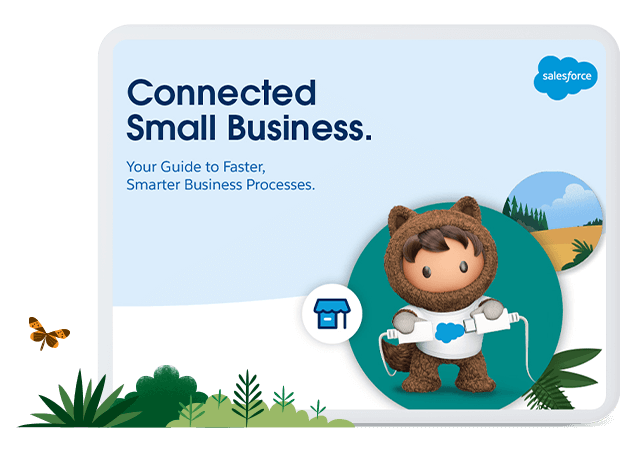With so many organisations shifting to remote or hybrid working, having a centralised data management system is more important than ever. Workers now need access to the same data, at the same time, from wherever they may be. Additionally, they need to have a complete view of the customer in order to address their pain points, especially when face-to-face interactions are dwindling and life is increasingly going virtual.
Having fragmented data and operating in silos prevents organisations from seeing the complete picture. To remain competitive and meet new customer expectations, today’s SMEs need to be data-driven, information-led and ready to pivot at short notice. They need to unite their data, operate from a ‘North Star’ of informational truth, and let that star guide them towards smarter decision-making.
In other words, today’s SMEs need to centralise their data management. Let’s take a look at where small businesses should start.
The benefits of centralised data management
Having a centralised data management system enables businesses to have more control over one of their most valuable assets, data. Additionally, it allows them to leverage this asset to power up their workforce, connect with their customer and make smarter decisions. Here are some of the benefits of centralised data management.
Provide a single source of truth to improve business intelligence. Research has found that 79% of data-driven organisations ensure that their decisions are supported by their data. But businesses will find it difficult to leverage insights to make smarter decisions if stakeholders are working with different sources of data. Having a single source of truth (SSOT) provides a unified source of real-time data for everyone in the organisation, wherever they may be.
Improve data integrity: Having a unified source of data fosters trust in the integrity of that data. According to a KPMG report, many business leaders have trust issues with their data, with 25% of respondents stating they have limited trust or active distrust in their organisation’s analytics. But when everyone is working from the same blueprint, it’s easier to have faith in the numbers when evaluating business performance and forming new strategies.
Increase operational efficiency: A centralised data management platform makes it easier to increase operational efficiency. Working with fragmented data, duplicate data sources or unreliable data makes it difficult to operate in an optimal manner. Leaders without a SSOT must make decisions based on hunches rather than information. And reps are forced to approach customers without having a 360-degree view of their interactions across departments.
Break silos: Uniting functions and departments through shared data enables them to get a clearer view of workflows and the bigger business picture. It removes potential efficiency bottlenecks. Best of all, it enables smoother collaboration. In a time when workforce agility is a growing concern and team members are increasingly being asked to take on new roles and tasks, having a unified vision is a great enabler. Furthermore, centralised data enables SMEs to be more transparent.
Reduce costs: A Data Literacy study shows that higher data literacy positively impacts gross margin and business returns, resulting in an additional $320–$534 million in enterprise value over businesses with lower data literacy. That’s the big picture. The small picture is that centralised data management can lead to immediate returns by reducing IT costs, improving productivity and eliminating redundant data stores and systems.
Top 5 tips for creating a data management strategy
SMEs will want to consider their unique pain points and business goals when creating a data management strategy, but there are a few general things to keep in mind:
Understand the full data landscape. When starting out, SMEs should map their data landscape to make sure all data points are covered, including both physical and Cloud-based datastores. This includes things like shared drives, email servers, databases, legacy systems and applications. The goal is not just to synthesise structured and unstructured data, but to make sure there are no rogue data sets in siloes. This is important for enabling successful collaboration.
Centre a data management strategy around a business goal. Centralised data management is most successful when it is oriented around a specific purpose. SMEs can start by clarifying their business goals, and then create a data management strategy aimed at addressing that goal. For instance, if the goal is to drive productivity and increase revenue, a data management strategy may revolve around using real-time data to deliver customer insights and market analysis. In this example, data would need to be turned into actionable information, perhaps through the creation of custom dashboards.
Get the stakeholders on board. Data provides insights. Without those insights, today’s SMEs are adrift and operating at a sub-optimal level. But for SMEs to get the most out of their data, all the stakeholders need to be on board. Leadership has to agree on appropriate data governance, and everyone has to have confidence in the data. The analytical benefits of data and a centralised data management strategy have to be made crystal clear, lest the business quickly backslide into its old ways.
Optimise data governance. Data governance refers to the processes and roles an organisation employs to manage its data responsibly. In other words, data governance is about accountability. When centralising data, it’s important to make sure key aspects of data governance are considered: Who has access to what data? Do employees have access to data they shouldn’t? Have all data risks been minimised? Are all regulations being complied with? Is there transparency? Is the data vulnerable to external threats?
Look for ways to monetise data: Monetising data isn’t about selling it. Or rather, it doesn’t have to be. The data an SME possesses can be used to nurture innovation and develop new products or services. It can be leveraged to identify and capitalise on new digital opportunities. It can be used to reduce costs and operate more efficiently. However, successfully monetising data requires strong data management capabilities and governance. The data must be safe, trustworthy and significant.
Unify data, unite the team
Without a centralised source of data, everyone is trying to put together a jigsaw without being able to see the whole puzzle. And without trustworthy data, decision-making is more difficult.
From reduced costs and improved efficiency to new business opportunities, a connected workforce and increased transparency, the benefits of a good data management strategy are evident. Now’s the time for SMEs to unify data, unite their team and take their business to new places.
To see more about how unifying processes can help SMEs transform their business, check out our ebook “Connected Small Business”.









